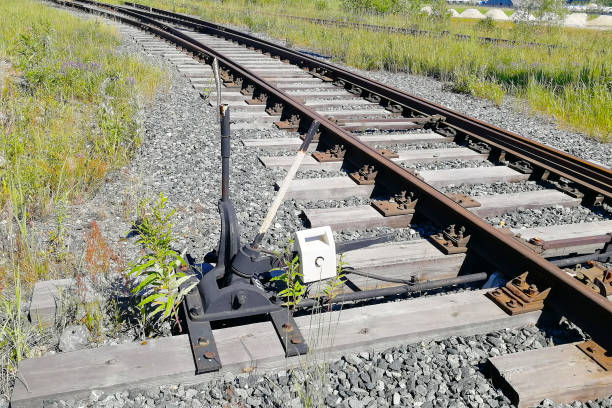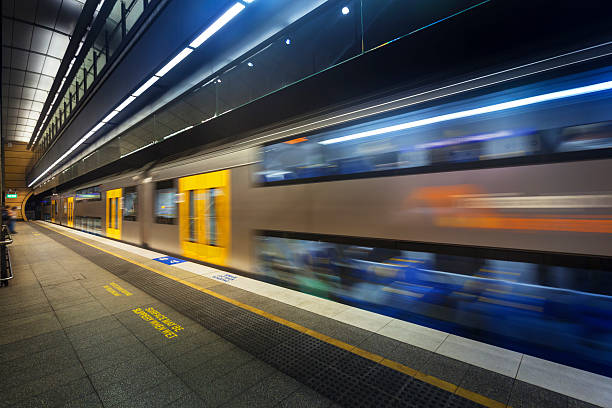If you are a regular commuter in New South Wales (NSW), you may have encountered offences relating to railways. Different laws and regulations govern these offences. Therefore, it is essential to understand them to avoid getting into trouble with the authorities. Some of the most common offences relating to railways in NSW include:
- Obstructing a railway line. Anyone who intentionally or recklessly obstructs a railway line commits this offence. This could include placing objects on the tracks, climbing on the tracks, or interfering with railway signals.
- Dangerously operating a train. Anyone who operates a train in a way that is likely to cause danger to others commits this offence. This could include driving the train while intoxicated, speeding, or failing to obey signals.
- Trespassing on railway property. This offence is committed by anyone who enters or remains on railway property without permission. This could include walking on the tracks, trespassing on a railway station, or entering a railway tunnel.
- Damaging railway property. This offence is committed by anyone who damages railway property. This could include graffiti, vandalism, or theft.
- Stopping a train without lawful authority. Anyone who stops a train without a lawful authority commits this offence. Moreover, this could include jumping in front of a train or pulling the emergency brake.
Read on to learn more about provisions and laws about offences relating to railways.
Section 211 and 212: Criminal Acts Relating to Railways
Section 211 of offences relating to railways outlines specific criminal acts. Here is a more detailed explanation of each section:
Section 211(1) prohibits anyone from intentionally doing or omitting to do something during railway operation with the intention of causing:
- Death;
- Injury; or
- Endangering the safety of someone on the railway or in a locomotive or other rolling stock on the railway.
Some possible examples of Section 211 (1) criminal acts may include:
- Tampering with the tracks;
- Disabling a train’s brakes; or
- Sabotaging a railway signal.
Section 211(2) prohibits anyone from intentionally doing or omitting to do something in connection with the operation of a railway with the intention of:
- Derailing;
- Destroying; or
- Damaging a locomotive or other rolling stock on the railway
Some possible examples of Section 211(2) criminal acts may include:
- Placing objects on the tracks;
- Cutting the brakes; or
- Setting fire or explosives in a train.
What about the passengers who are involved in offences relating to railways? Section 212 covers the offence of endangering people on the train. Endangering the safety of others on a railway is punishable by up to 3 years in prison.

Section 213: Obstructing a Railway
Section 213 of offences relating to railways states that a person is liable to imprisonment of 2 years if they:
- Intentionally obstruct a railway which causes the passage or operation of a locomotive or other rolling stock on a railway; or
- Assists a person in obstructing a railway.
The key elements of this offence are:
- The act must be intentional. This means that the person must have done the act with the specific intention of obstructing the passage or operation of the train.
- The act must be without lawful excuse. This means that the person did not have a good reason for obstructing the passage or operation of the train.
- The act must cause obstruction to passage or operation of the train. This means that the act must actually prevent the train from moving or make it more difficult for the train to move.
Section 214: Obstructing a Railway – Verdict of Misdemeanour
Section 214 discusses the verdict of misdemeanour in relation to offences relating to railways. The jury may acquit the person guilty of an offence under Sections 212 or 213 under one condition which is:
- The person in question must not be guilty of an offence under Section 211, but the jury must believe that the person is guilty of an offence under Sections 212 and 213.
Offences Relating to Railways: Passenger Transport (General) Regulation 2017
The Passenger Transport (General) Regulation 2017 also has relevant provisions relating to offences relating to railways. Let’s break them down.
Anyone who interferes with or damages public passenger vehicles or trains, or enters restricted areas of railway premises without a good reason, may get a fine of up to $5,500. Clause 57 of the Regulation states this. The same maximum penalty applies to people who go into or stay in:
- Restricted areas of railway stations
- Running lines
- Workshops
- Offices; or
- Other railway premises without a good reason.
People who destroy or damage public passenger vehicles or trains, railway infrastructure or property on railway premises, may be fined up to $2,200. This is stated in Clause 61 of the Regulation. These maximum penalties apply if the matter is dealt with in court.
However, police may issue an on-the-spot fine of $400 (penalty notice) instead of taking the matter to court. Paying the penalty notice will end the matter.

Helpful Tips on Reporting Offences Relating to Railways
1. Call the police immediately. If you see someone committing a railway offence, call the police immediately. The sooner you report the offence, the easier it will be for the police to investigate.
2. Give as much detail as possible. When you call the police, be sure to give as much detail as possible about the offence you saw. This includes the time and location of the offence, a description of the offender, and any other relevant information.
3. Be prepared to provide a statement. If the police ask you to provide a statement, be prepared to do so. Your statement will be important for the investigation.
4. Stay calm and cooperative. When you interact with the police, be sure to stay calm and cooperative. This will help the police to get the information they need to investigate the offence.
The Importance of Seeking Legal Advice
Our criminal lawyers at JB Solicitors have extensive experience in dealing with railway offences and can help you understand your rights and options. Our team will also defend your case and protect your interests should you be involved in railway offences.
We will keep you informed of the progress of your case and be readily available to answer your questions and concerns.
Message us today if you need legal assistance with offences relating to railways.
